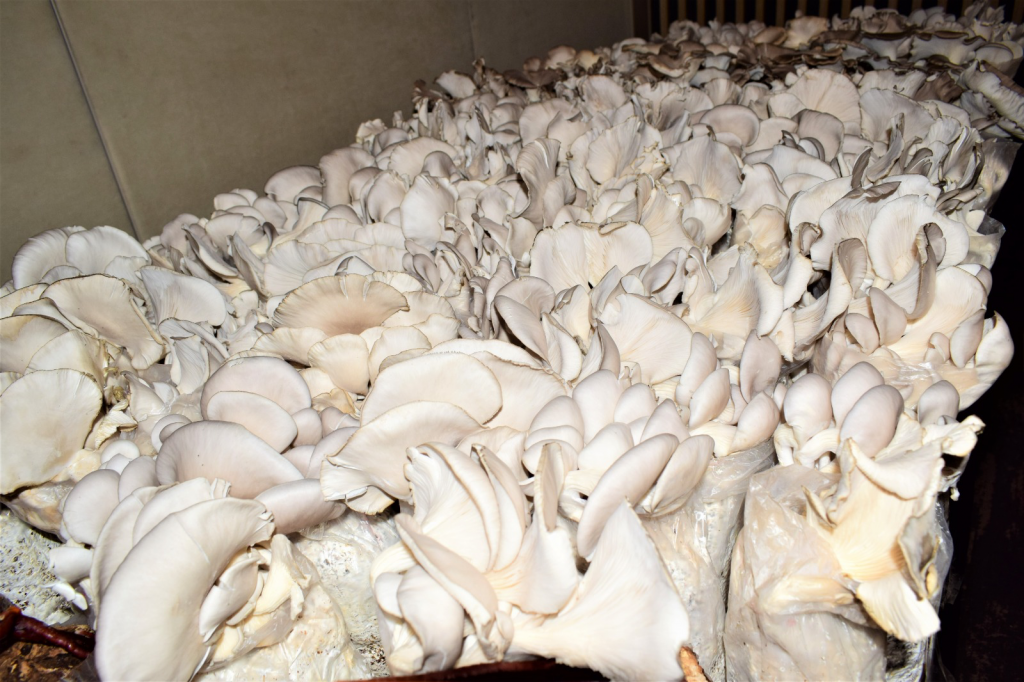Published: August 05,2024

At an exhibition stand at an agriculture show in the Rwandan capital of Kigali, Emmanuel Ahimana said it is an exciting time to be involved with China’s Juncaocultivation technology.
His company, which operates in Kigali’s GasaboDistrict, uses the Chinese-invented Juncao technology to grow mushrooms with low-cost materials such as Juncao powder, cotton husks, lime powder, and water. After learning the Juncao technology, Ahimanaestablished a mushroom cultivation workshop in 2016, employing dozens of people. The workshop produces up to 10,000 mushroom tubes monthly. His goal is to expand the business to produce with modern machines and open several shop outlets around Kigali to sell mushrooms. Juncao is a hybrid grass and an important multifunctional agricultural resource developed and used for mushroom farming in China. The innovation invented by Lin Zhanxi from China’s Fujian Agriculture and Forestry University in the 1980s has benefitted over 100 countries, including Rwanda.
Ahimana is one of more than 4,000 Rwandan farmers benefiting from Juncao technology, employing over 30,000 people in the agricultural value chain, according to the Rwanda Agriculture and Animal Resources Development Board. Leonidas Mushimiyimana, another Rwandan farmer, said the Juncao technology has made a big impact on his community. He started mushroom production after receiving training from Fujian Agricultural and Forestry University and capacity-building workshops from the United Nations Department of Economic and Social Affairs. This came at a time when a solution was needed to address local challenges such as poverty, child malnutrition, and youth unemployment.
To date, his company, DEYI Ltd., located in the Gasabo District, focuses on mushroom cultivation and covers the entire value chain, serving local and regional markets with exports to Tanzania, Uganda, and the Democratic Republic of the Congo. Mushimiyimana also said he used the income from his Juncao mushroom production to build a school, which has improved education and economic opportunities in his community.
Since 2006, experts from Fujian Agricultural and Forestry University have been working with the Rwandan government on Juncao technology, teaching and promoting Juncao and other agricultural technologies in the country at the China-Rwanda Agriculture Technology Demonstration Center located in southern Rwanda. To date, more than 50 training courses on Juncao mushroom cultivation technology have been organized, benefiting more than 35,000 local mushroom farmers, official data show.
According to a concept note, building and strengthening the capacity of target groups in Juncaotechnology is essential to driving sustainable change, transforming agri-food systems, and achieving the United Nations Sustainable Development Goals, particularly those related to ending hunger, eradicating poverty, creating jobs, empowering women and youth, and protecting the environment. By supporting mushroom cultivation, the innovation has promoted food security and the transition to a green economy through environmentally friendly technology and more sustainable agriculture, Egide Karuranga, a Rwanda-based economist, said in a recent interview with Xinhua.
Karuranga said Juncao has played an important role in building resilience to climate change. “It has also helped combat land degradation by producing fodder for livestock and minimizing soil erosion.” “Juncaotechnology has been a success, which demonstrates the need to invest in science and technology,” Karurangasaid, highlighting the technology’s transformative power in changing the lives of communities, including farmers, women, and youth.
Xinhua
 Africa -China Review Africa -China Cooperation and Transformation
Africa -China Review Africa -China Cooperation and Transformation
